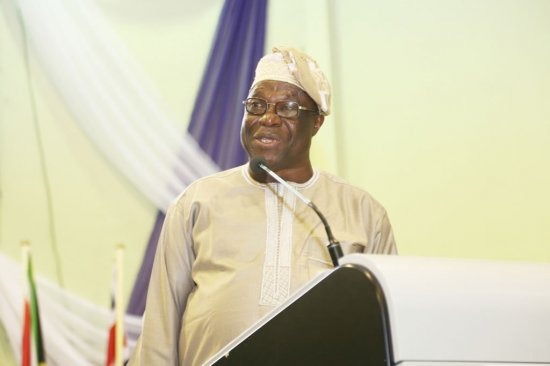The Major Oil Marketers Association of Nigeria (MOMAN) have expressed their deepest empathy to all Nigerian citizens; acknowledging the challenges faced by the Nigerian public over the increasing cost of premium motor spirit (pms).
This is even as the association reiterates its support for the federal government’s petroleum industry deregulation policy.
This was disclosed in a statement made available to energy correspondents today during a media knowledge sharing workshop.
According to Moman “The international price of crude oil and the exchange rate constitute the largest components of the cost build-up for Premium Motor Spirit (PMS), accounting for over 80%. The remaining 20% includes statutory dues, distribution costs, and margins”.
Deregulation promises a transparent and level playing field where cost-reflective prices are evident at fuel stations.
It follows, therefore that in a liberalized market, the pump price of PMS should accurately reflect the current economic realities.
In recent months, the price of PMS has remained relatively stable. On 30 May 2023, Platts
reported a price of $827 per metric ton (MT), and on 14 July 2023, it was $859.25 per MT.
However, there has been a significant increase in the foreign exchange rate. We can infer from
our calculations in May that the Nigerian National Petroleum Company Limited (NNPCL)
determined its pump price using an exchange rate of about N630 to the US Dollar, while banks
reported an exchange rate of approximately N650 on the Investors and Exporters (I&E) window.
As of today, the liquid exchange rate is close to N825 to the Dollar. This devaluation adds N100
to the cost of importing a single litre of PMS into the country. Consequently, an increase in the
pump prices of petrol should be expected.
In the spirit of transparency, MOMAN advocates for federal, state, and local governments, as well
as employers of labour, to implement palliative measures to support less privileged individuals in
society currently facing hardships. It is essential that rapidly executed palliative measures receive
wide publicity to alleviate the already agitated public sentiments.
At MOMAN, we have always anticipated that the removal of subsidies and the stabilization of the
downstream market would be a gradual process. This process necessitates operators and
regulators to engage the public transparently, earn public trust, and foster fair competition that
ensures full value for customers at the fuel pumps.
We commend the authorities for their urgent efforts in opening the market, allowing various players to import petroleum products into the country. This market liberalization and the commitment to a level playing field should enhance operators’ efficiency, enabling them to offer competitive pricing choices to the public.
Some operators have successfully imported PMS into the country, marking the first practical step
towards a liberalized market. However, the major challenges still lie in accessing foreign
exchange for imports and ensuring a level playing field regarding pump prices. If marketers are
undertaking the financial risk of importing petrol, measures must be in place, in line with the
Petroleum Industry Act, to ensure that no one player has an unfair advantage.
Furthermore, it is important to note that a crucial aspect of the program’s success lies in three
key areas:
- Effective & sustainable implementation of the gains from subsidy removal. These gains
should be invested in the promised palliatives, including subsidized transportation, as well as social investment programs for healthcare, education, and infrastructure development (such as roads, railways, and power). MOMAN urges that these initiatives be rolled out in a visible, transparent, and timely manner - Focused and sustained increase in our national production of crude oil from the current
1.2 million barrels per day to closer to 2m barrels per day – this will bring the much-needed foreign exchange. - Ongoing engagement and accountability to Nigerians with respect to the first two points. We firmly believe that transparency & engagement are essential for building public trust and understanding.
The reality is that downstream deregulation has brought about structural changes and
opportunities for Nigeria and PMS now stands as the most expensive product in the energy mix
for consumers. So in conclusion, MOMAN would like to offer pragmatic advice to combat the
current situation faced by all Nigerians and minimize the financial impact on households.
- Nigeria is blessed with one of the largest gas reserves in Africa and an abundance of solar
resources so we encourage end-users to analyze and adjust their individual energy consumption mix. - Households that can afford to, should consider switching from PMS and AGO to gas or solar power for their homes. However, we emphasize the need for special precautions to ensure the safety of lives and assets when dealing with gas.
- Additionally, the government and businesses can promote the use of LPG and CNG for intercity buses, tricycles (kekes), minibuses, and taxis to power their vehicles.
In any event, the country will need to explore and deploy different energy options to develop a
sustainable, affordable and long-term energy mix for powering homes businesses and mobility.
MOMAN remains committed to its mission of fostering transparency, competitiveness, and best
practices in the Nigerian downstream petroleum sector.
We believe that effective communication among all stakeholders is vital in addressing the
challenges and ensuring a brighter future for the Nigerian people.







